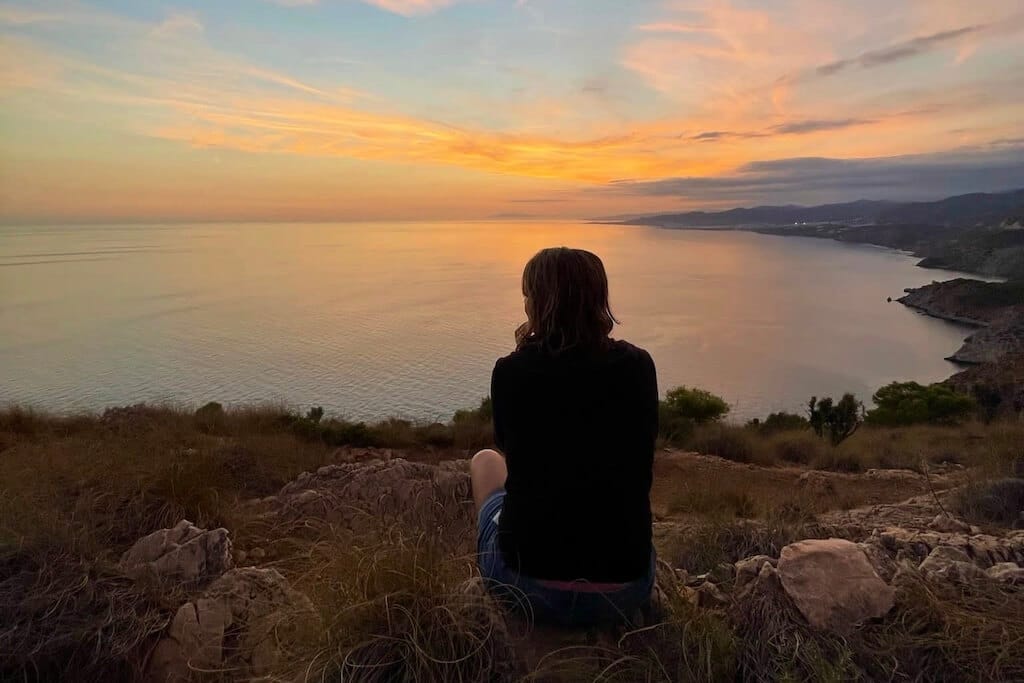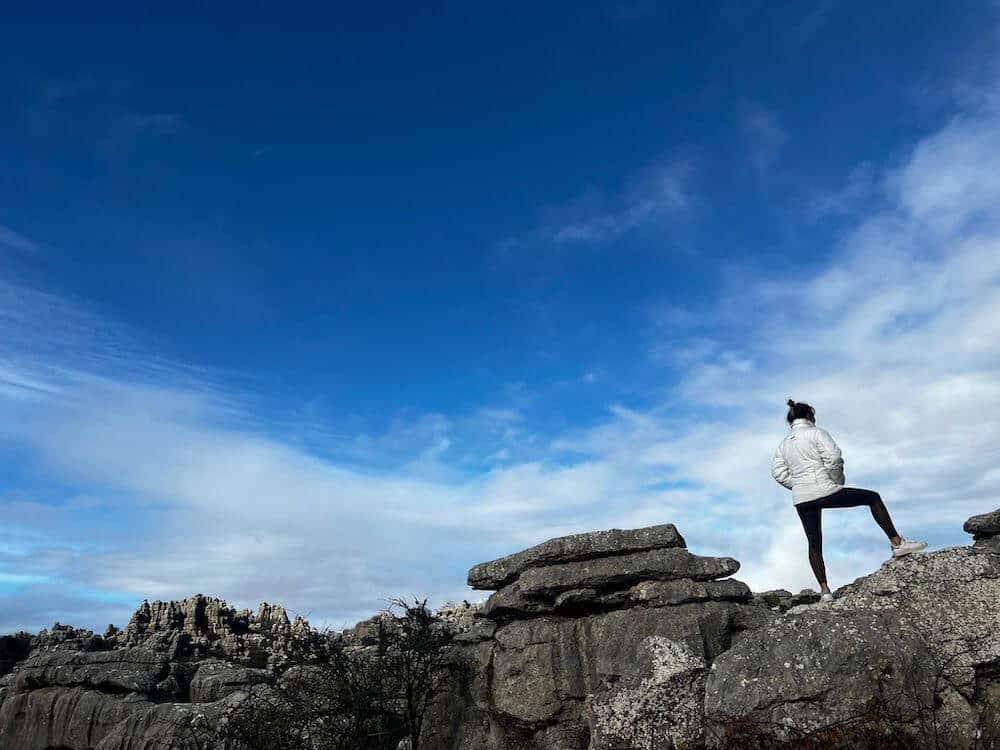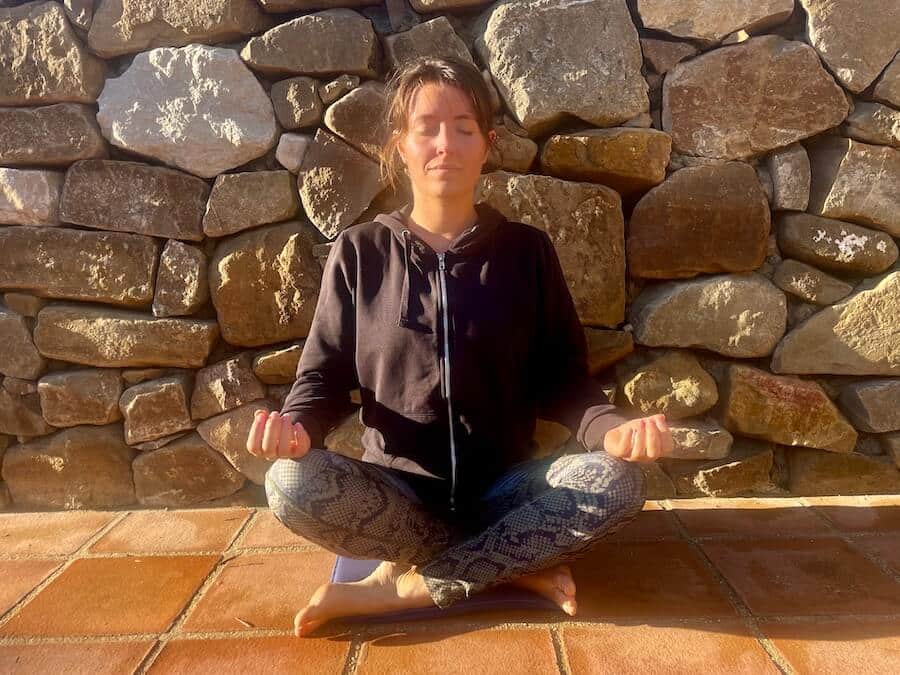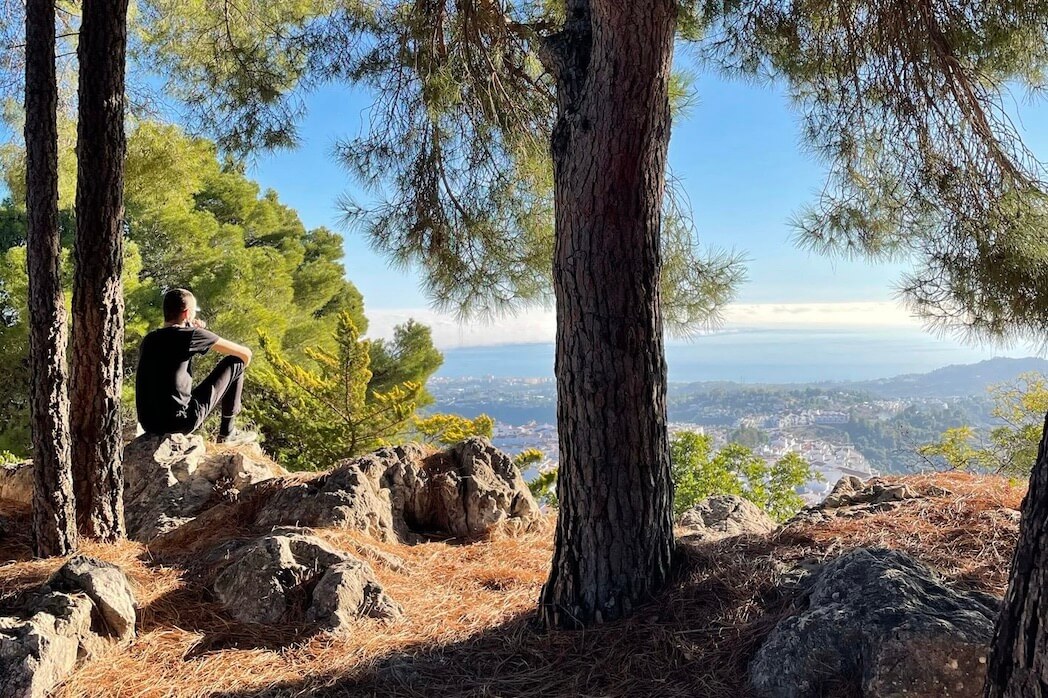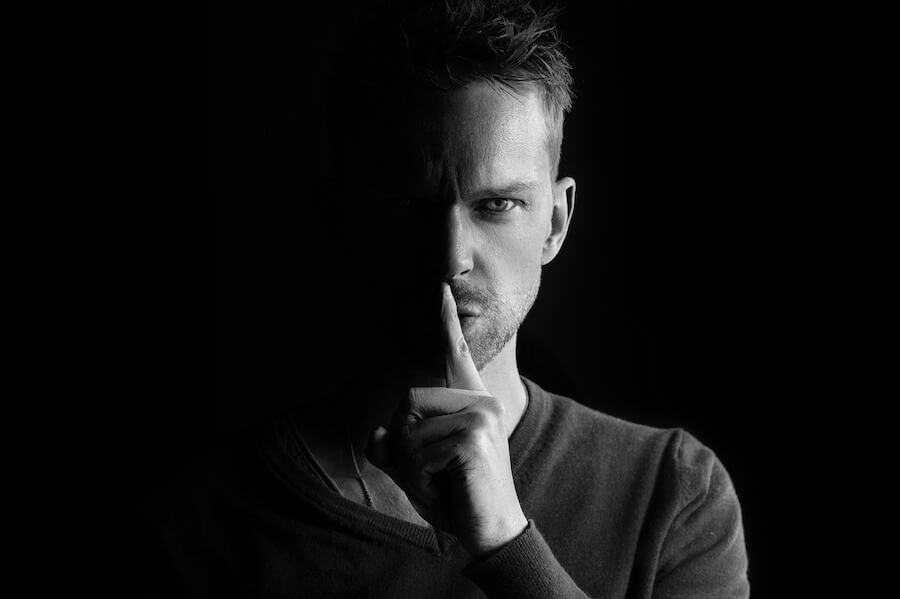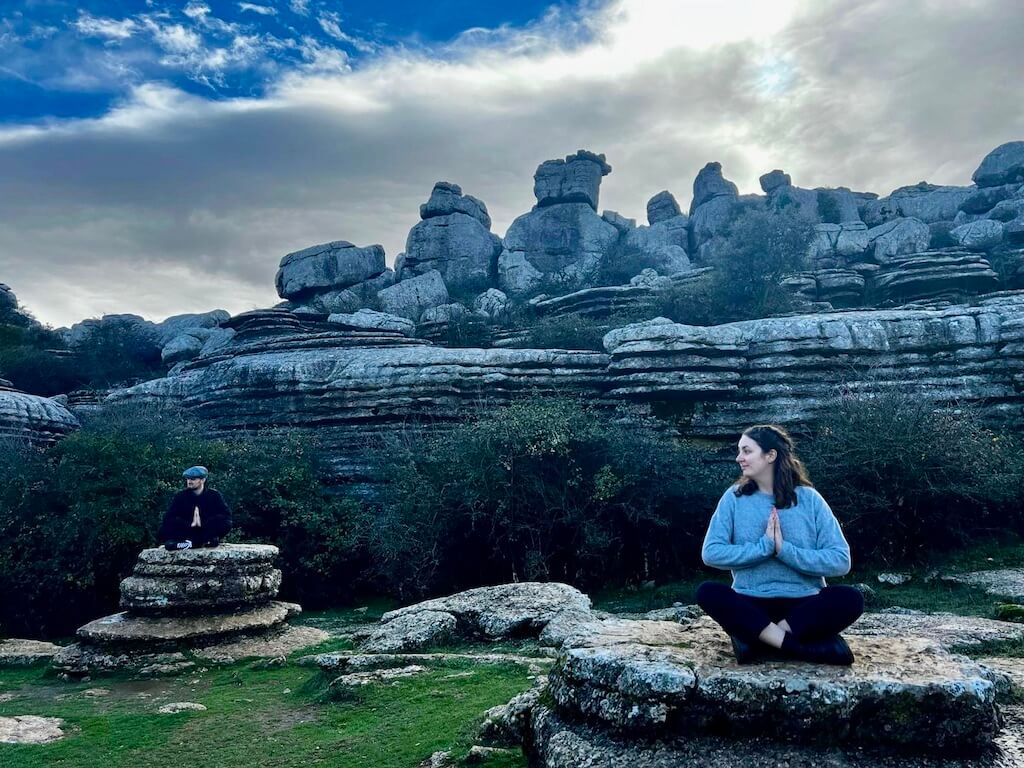How long does it take to learn mindfulness skills?
Ahh so that’s not a sweeping question now is it.
Like anything, it’s different for every person, depending on (among other things), your own specific approach to learning mindfulness, your previous mindset, and also the intention you set for learning mindfulness.
You may wonder if you can learn mindfulness skills on your own. Well, sleep easy again, it’s perfectly doable.
Maybe you’re be seeking a healthier, more conscious lifestyle by including mindfulness. Or perhaps you’re interested in the spiritual roots of which mindfulness makes up just one piece.
But whatever the specifics of your case, the true answer to this question is that you start to learn mindfulness the moment you begin, and you continue to learn forever, because there’s no finish line.
A bit like when we set out to learn meditation, it’s an ongoing process.
But that’s probably not that helpful to you, is it?
So let’s look at some of the more tangible practicalities.
Mindfulness on any level brings awareness of the present moment, a practice which you can apply to each and every day of your life, so there really is no one moment when you’re finished and done with it.
Like, I mean, you wouldn’t ever say, ‘That’s it. I’ve learned it!‘
But what about how long it takes to start seeing tangible progress, to begin to feel mindfulness then?
Some sources say that you can practice mindfulness for just 8 weeks to start to feel its benefits. Others, that you need to practise for hundreds, if not thousands of hours.
Why the discrepancy? There are a myriad of reasons.
The practise of mindfulness goes back 2500 years to ancient buddhist teachings but to truly embrace the buddhist teachings, it isn’t just about learning mindfulness.
Mindfulness is one of the eight limbs of buddhism and to really ‘learn it’ or to become accomplished at mindfulness in this sense of the word, will take many years.
However, mindfulness has become modernised and popularised in the west without necessarily unfolding the whole spiritual package.
And it’s the practise of modern mindfulness which you can learn in how to start doing in around 8 weeks.
You won’t have finished learning after 8 weeks, you’ll only just have begun. But 8 weeks is a starting point on your journey to mindful living.
By definition, practise mindfulness for this precise moment of Now instead of aiming to reach a future goal.
Love Vegan Living
So the answer to how long does it take to learn mindfulness is that there is no time at all because as soon as you’re being mindful you are it.
Table of Contents
How Long does it Take to Get into the Practice of Mindfulness Meditation?
For a more practical, worldly answer, the time it takes to develop a practice will depend on so many things, including . . . .
- How you approach mindfulness (what intention have you set?)
- How long do you meditate or practise mindfulness for in each session?
- How often do you practise?
- What was your starting point? Do you have a natural inclination towards mindfulness to begin with or are you coming to the practise with many mental obstacles?
- Do you have other people in your life who help to inspire you in your practise, or are you alone? Have you taken a course, or do you work with a teacher?
- Are you reading about mindfulness as well as practising?
- Do you apply what you learn to the rest of your day?
- Are you struggling with poor diet choices or are you nourishing your body with a healthy plant-rich diet?
One way to practise mindfulness is through meditation, and getting comfortable with mindfulness meditation is an extremely personal thing.
If you find it hard to start meditating, you might find it helpful to start out by meditating with music. On the other hand, you might find the music interferes with your ability to achieve that meditative state of consciousness.
Another approach is to set a timer for your meditation and start off with a short time, like 5 minutes for example, gradually building up the time until you feel confident to sit for longer periods.
In fact the question of what to focus on during meditation is one of the things to consider when you first start out, as there are many different styles of meditation.
For some people, the first sitting will bring such an uplifting sensation of freedom from the mundane, maybe even touching into the realms of euphoria that they will leave their first experience feeling excited for the next.
But for most of us, starting out at meditation can be a challenge, not because it’s difficult to do, but because it’s so unfamiliar to us. Our thoughts may seem to be acting out and making much more noise than normal.
You may experience some physical discomfort, fidgeting, itching & scratching, mind-racing, doubt, negativity or even anxiety.
Meditating with your eyes open can help keep you feeling more grounded if this sounds like you, but try not to actually focus on things arounds you, but rather meditate with a glazed over look, staring down at about 45º.
Another newbie reaction might be that you wonder whether you’re wasting your time, or you think that you’re ‘no good’ at it.
Maybe you wonder if there’s a wrong way to meditate, or even feel stupid for trying to attempt to learn mindfulness in the first place, but don’t listen to those voices!
And these types of negative experiences can discourage you or make you doubt the reasons for practising mindfulness in the first place. But don’t give up, it’s just a transitional period and you will overcome it.
Even if you have to meditate with noise around you, this can be a great opportunity to strengthen your awareness and mindfulness practice.
Sometimes a mindfulness meditation can feel loud and busy, and that’s usually because we’re not used to disconnecting from our thoughts.
Many of us jump into the thought as though it were our very being. I am my thought.
But it isn’t so. You aren’t your thoughts and with practise you can step aside and allow the thoughts to unravel without you believing that you are your thoughts.
And it’s this shift which can be challenging in the beginning.
If you aren’t used to observing your thoughts you may think that they’ve become particularly loud and disruptive as you sit with the intention of stillness.
The trick is to be accepting of what arises.
Accept that you’re training your mind and that in the beginning it may not flow so easily. You wouldn’t go to the gym for the first time and expect it to feel easy now would you?
But the question you asked was, how long . . . right?
How Long does it take to Make Mindfulness a Habit?
The truth is, there’s such a vast variation between us as individuals and our responses to a new practice, that specific timelines can be misleading.
Apart from the standard 8 weeks, another commonly quoted figure is that a new habits can be formed in one month.
An even faster timeline that’s often suggested for learning a new habit is 21 days, but in actual fact, the ’21 day rule’ is a misquote from its original source.
It was originally coined from the writings of Maxwell Maltz, a plastic surgeon who wrote in his book, Psycho-Cybernetics in 1960 that his patients tended to take a minimum of 21 days to adapt to their new situation.
This was after studying his patients after they had undergone surgery. But his actual words were ‘at least 21 days‘, which is quite different from saying just, 21 days.
The 21 days became adopted by the mainstream and repeated as a standard amount of time needed to change a habit, when in fact, for most people it may be much longer.
Phillippa Lally, PhD, a researcher from University College London, published a study in 2009, based on 96 participants and showing that 66 days is a more standard average length of time needed to form a new habit.
The range of time in the study was actually 18 days the shortest, and 254 the longest.
So you see, it probably isn’t the most helpful of questions to be asking yourself when you first start out along the road to mindfulness!
But don’t worry, because you can pick up so many benefits right the way along the path without waiting for a specific golden moment.
You can benefit from practising mindfulness well before you’ve ‘learned it’ and certainly before it becomes a true habit.
How Long does it Take to Make Progress in Mindfulness
How long does it take to learn mindfulness isn’t the most helpful question. Instead, you could better ask yourself how to feel as though you’re making progress while learning your mindfulness practise.
In other words be aware and appreciative of each step of the way, of every moment and every part of your experience. That is what being mindful is about.
Why? Because mindfulness isn’t a final product, it’s a process. It isn’t about seeking some future goal but appreciating and being fully awake in this present moment.
It’s like asking, how long does it take to learn generosity? Generosity is something you practise in your life and get better at as you stimulate your brain’s positive response to the act of giving.
If one day you stop giving, have you unlearned generosity? And likewise, if you give somebody something one day, have you learned generosity?
The same is true with mindfulness. You can begin to learn mindfulness from the very moment you become aware of its presence in your life.
And you can promote mindfulness and grow it just as you strengthen muscles with exercise.
Take a moment to breath in and breath out, and feel the breath as your belly and chest rise and fall. Concentrate just on the act of your breath flowing in and out.
Congratulations. You’ve just practiced your first moment in mindfulness. Of course that’s not enough to get you on your way, but it’s the very first step.
From taking moments during the day to become more mindful, to sitting and meditating mindfully every day, mindfulness is a practise that will enrich your life and lead to higher awareness of your actions, emotions, and sensations.
You can become less reactive to triggers and choose how to respond rather than just fire off an answer out of reflex. Isn’t that a skill we’d all love to have?
You may find you appreciate all the good things in your life more than you had before, from the food on your plate to the person you are listening to as they tell you about their day.
And yes, there is a relationship between mindfulness and a vegan diet, or a healthy plant based diet.
On a deeper level, mindfulness can train your brain and change your perception of things and rewire your neurons for more positive response to the trials and problems of daily living, ultimately creating a happier, more fulfilling experience of life.
How Long to Practise Mindfulness in Normal Activities Every Day
Many people already go deep into mindfulness when they’re practising their favourite activities.
An artist who is completely absorbed by the drawing they’re working on is experiencing mindfulness in that moment. The athlete or acrobat are similarly one tracked minded when immersed in their activities.
Yoga is a great form of practising mindfulness. As are other physical activities such as going to the gym or playing a sport.
The problem with many of us in our daily activities is that we actually allow the brain-chat to take over.
Or we live in the future and in the past.
So while you’re eating, you may not notice the full flavour of the food as in your mind you’re dwelling in the past or the future.
We actually spend most of our time thinking about the past or the future, in fact according to one study in America, people do this for 47% of the time.
You can change that right here and now.
There is no delay.
Choose a daily activity and focus your intention on it fully.
Become aware of a wandering mind and gently bring it back to the activity at hand.
Final Thoughts on How Long does it Take to Learn Mindfulness?
- Approach Mindfulness with an open mind and a childlike desire to learn. That will help your negative voices become more still and that will speed up your ability to be aware of the present moment.
- Try to find books and articles to read and videos to watch so that you keep feeding your subconscious with evidence of the power of mindfulness.
- Include a daily mindfulness meditation practise as well as your usual activities.
- Apply the shift which you experience to the rest of your day. So you may start by being more mindful of listening to your family as they speak, or to the flavour of the food as you eat.
- Appreciate the benefits which you experience from your practise but don’t feel disappointed if they are elusive. Remember, you’re in training and these things take time to materialise.
- Start a daily gratitude journal, or if you prefer, a gratitude ritual.
I hope you enjoy your mindfulness meditations!
Related article: Does Mindfulness Really Work?
